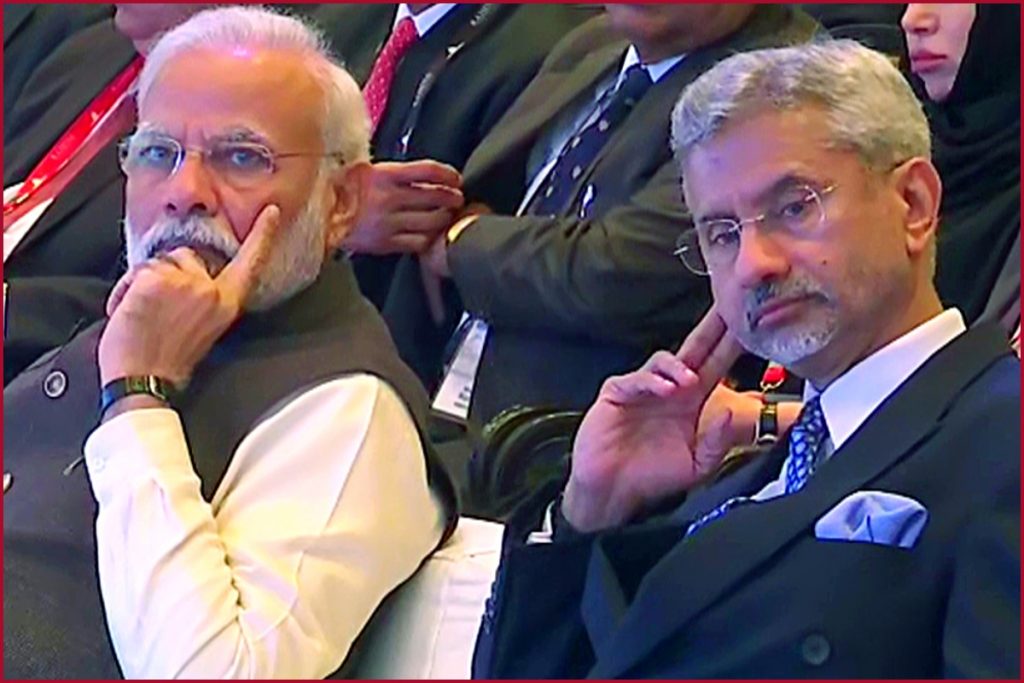When two developed countries and then the United Nations react negatively to serious political-legal-constitutional developments in India, it does tend to suggest something is seriously wrong. It is churlish for the Indian government to shrug off such criticism with a swagger that these are the country’s internal matters and as such it will not brook any interference from outside. Such denial may fit in with the BJP’s narrative of the country being led by a tough, powerful, no-nonsense Prime Minister who does not cow down before mighty foreign powers. Such messaging also seems to be intended to create the impression among the people during election time that this government is braver than any other previous ones on the international stage. Already, the ruling party has been assiduously trying to project its mascot, PM Narendra Modi, as a world leader of great stature, however illusory and self-congratulatory it may be.
It is a matter of great concern, especially for the country’s global standing, that after Germany and the US, a spokesperson of the United Nations has adversely reacted to the arrest of Delhi Chief Minister Arvind Kejriwal weeks before the Lok Sabha polls. The US and German officials issued public statements gently reminding India about the importance of the rule of law. They have stated that they encouraged fair, transparent, timely legal processes being followed in the case as well as regarding the Congress’ charge that its election funds have been frozen by a government agency to deny it a level playing field in the LS polls. A UN spokesperson has also weighed in on the matter, saying that he hoped everyone’s rights are protected in India.
However, the response from New Delhi was anything but gentle reflecting the tough new brand of diplomacy being practiced by the PM and his External Affairs Minister S Jaishankar. Predictably, BJP supporters and the party controlled social media network hailed the reactions as evidence of India’s “new-found” power on the global stage under the ruling dispensation. As a result, instead of pursuing nuanced, quiet diplomacy in the face of deep suspicion that the arrest is engineered without concrete evidence of corruption as argued by Kejriwal’s lawyer, the Foreign Ministry immediately summoned German and US diplomats for a dressing-down in New Delhi. It lashed out at Washington for “casting aspersions” and making “completely unacceptable” comments about India’s internal affairs after the State Department iterated its concerns about Kejriwal’s arrest and the freezing of the Congress’ campaign funds. Parroting the same line of argument Vice President Jagdeep Dhankhar raised a complaint frequently heard among Modi’s supporters that the US is moralizing, overbearing and prone to interfering. He told the American Bar Association at a conference in New Delhi that “there are people in the world who want to lecture us on our judicial behaviour.” He then went on to dismiss the US officials’ comments on the controversial new Indian citizenship law as “ignorant.” His remarks that India being a nation with a civilizational ethos of more than 5,000 years is not prepared to “get scriptures from others” reflected the same arrogant attitude being shown for some time by Jaishankar on criticism of government’s actions by foreign powers.
While India has been charging other countries with interference in our internal matters, PM Modi has been accused of “interfering” in the US presidential election after he gave a speech in Texas with the slogan “Abki baar Trump sarkar” that critics say endorsed then President Donald Trump for re-election.
Likewise, the Canadian Security Intelligence Service in an intelligence report has alleged that India had potentially interfered in the country’s election. The report named India as a “foreign interference threat” and stated that the government “must do more to protect Canada’s robust democratic institutions and processes.”
When the government expects foreign investments to boost our economy, it should not be averse to foreign opinions. This becomes all the more important as economic performance is affected by politics and diplomacy.
